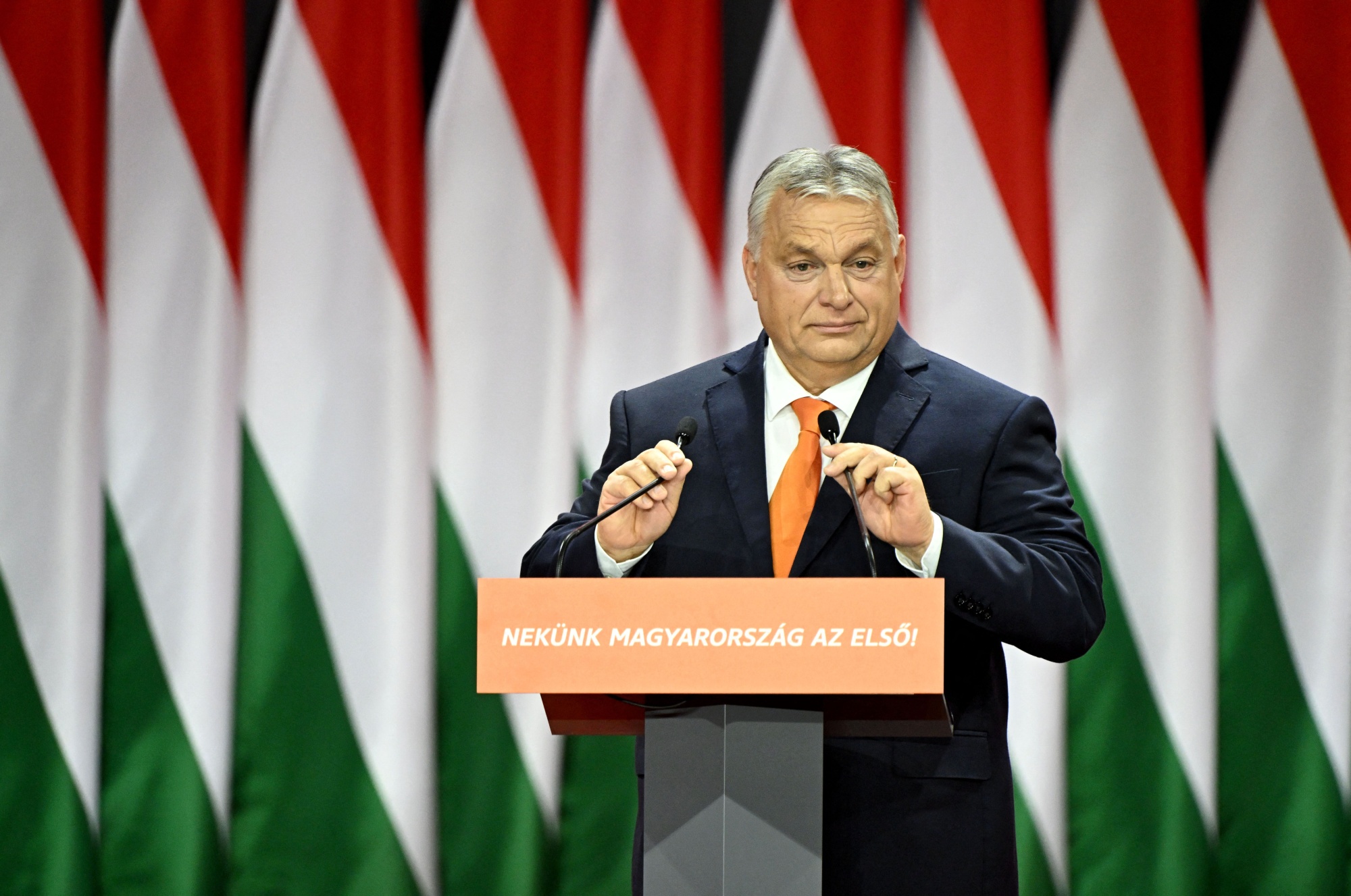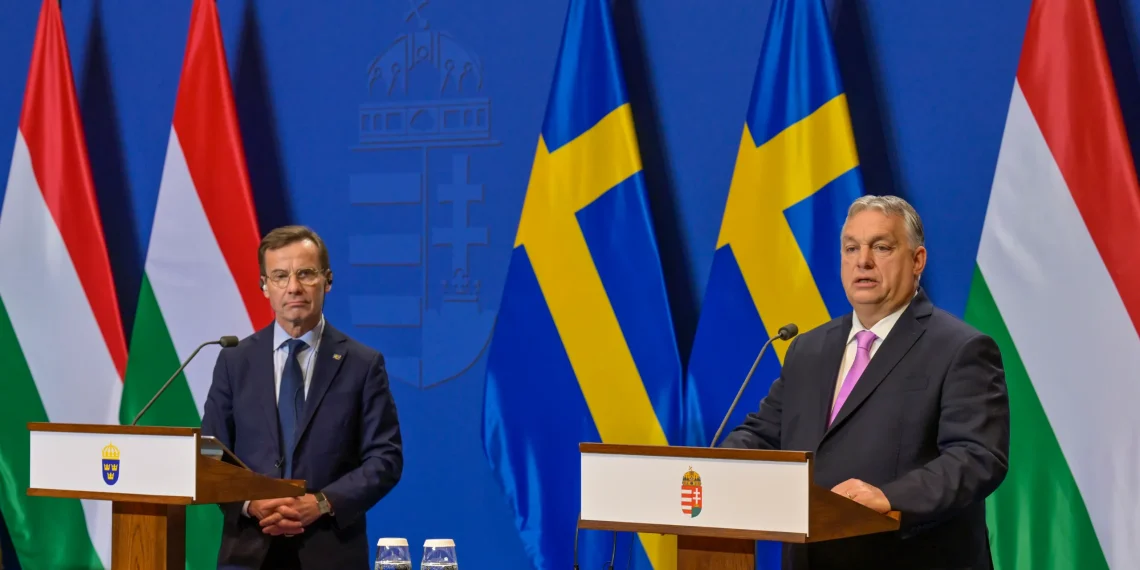Hungary is poised to ratify Sweden’s NATO accession, marking the final step for the Nordic country’s departure from its longstanding neutrality. The move comes after months of deliberation, with the Hungarian parliament set to vote on Monday.
This decision is expected to pass smoothly, particularly following a recent visit by Swedish Prime Minister Ulf Kristersson, during which an arms deal between the two nations was signed.
Sweden’s shift towards NATO membership began after Russia’s invasion of Ukraine in 2022, prompting Stockholm to abandon its non-alignment policy in favor of greater security within the North Atlantic Treaty Organization.
With Hungary’s approval, Sweden will become the 32nd member of NATO, a significant milestone given the country’s historical neutrality spanning two world wars and the Cold War era.
President Vladimir Putin’s war in Ukraine sought to deter NATO expansion, yet Sweden’s accession, following Finland’s membership last year, represents an unexpected outcome. Turkey and Hungary had raised objections to Sweden’s NATO membership, primarily due to concerns over their relations with Russia.
Turkey, in particular, demanded action against Kurdish militants in Sweden, while Hungary expressed grievances over Swedish criticism of its domestic policies under Prime Minister Viktor Orban.

However, Sweden addressed Turkey’s concerns by amending laws and easing restrictions on arms sales, with Turkey linking ratification to the approval of F-16 fighter jet sales by the United States. Hungary’s hesitation was more rooted in political tensions, particularly regarding criticism of its democratic trajectory.
The inclusion of Sweden, a country with a longstanding tradition of peace, into NATO, marks a significant expansion for the alliance. Sweden’s modern military capabilities, including advanced submarines and domestically produced fighter jets, are set to bolster NATO’s defense posture, particularly along its northern flank.
Additionally, Sweden’s increased military spending aligns with NATO’s objectives, enhancing collective security in the region.


















